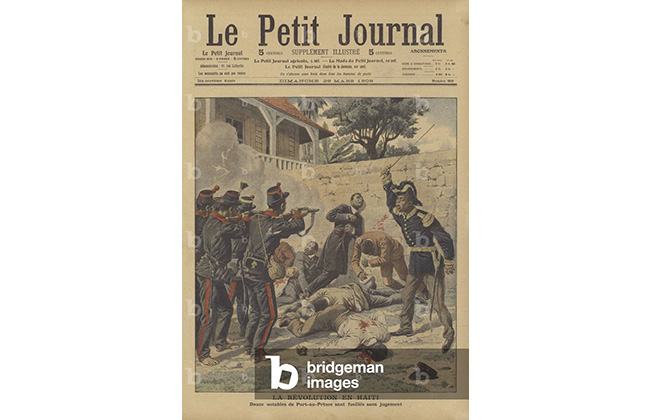
The recent insurgency in Haiti, and the assassination of its leader in 2021 after years of deadlock among political players, has affected the sustainability of the country’s media industry with the print version adversely affected in the Caribbean Island nation.
The long term effects of political differences has been the reduction in the print and production of the many of the renowned weekly and daily publications with the latest casualty being the daily print newspaper, published by Le Nouvelliste, an absence that threatens the country’s data preservation despite digital media being available.
The Le Nouvelliste-the country’s leading privately owned-print daily publication after years of existence formally succumbed to the whims of the armed gangs after they attacked its offices in downtown Port-au-Prince in April, scattering all the staff that operated from that bureau, giving rise to digital and other online publications, a concern among critics on the possibility of existing without the of the print version.
“The print press is almost extinct; Le Nouvelliste was the last one standing,” Max Chauvet, the outlet’s director of operations is cited as saying in a statement.
Le Nouvelliste hopes to resume its print edition at some point down the line. “It’s very troubling for a country to be without a print press.”
While Port-au-Prince has some weekly newspapers produced from the diaspora, their circulation is limited and does not reach many would-be readers, a cause for concern by the citizenry that need information and raises eyebrows of the country’s media watchdog.
“The absence of print media in Haiti will have serious repercussions on the dissemination of knowledge in the country, warned Jacques Desrosiers, Secretary General of the Association of Haitian Journalists.
“The print media also serves as the country’s archives,” he says. “If you need to learn about an event that occurred long ago, you turn to a printed newspaper. While technology offers archiving possibilities, we’re not yet at that level in Haiti.”
Although the online or digital media serves as alternative to the Le Nouvelliste which relocated to Pétion-Ville and others and of filling into the void created by print media, interest groups are concern at the lack of it, leaving the situation fragile for lack of reference in due course.
The attack on the Le Nouvelliste offices was the last straw for the newsroom’s managers to decide to go fully digital, notes Chauvet, arguing:
“For now, we are unable to produce the paper version. This doesn’t mean we’ve completely abandoned it. If order is restored and we can once again access our historic [newsroom] sites, we will resume production,”
Although digital news sites can provide access to information in the absence of print media, they have limitations when it comes to data retention. “Take the example of the [Haitian] newspaper, Le Matin, which was published online. Now that the newspaper no longer exists, its content is no longer available on the web,” Desrosiers observed.
Le Nouvelliste has relocated its offices from Port-au-Prince to the nearby suburb of Pétion-Ville since the attack. Still, it is argued, is too expensive to move all of the newspaper’s equipment from downtown, Chauvet said, and the need for repairs and to replenish supplies is a further concern.
“We’ll need to carry out repairs and reorder supplies before we can get the presses running again. But even then, how will we reach subscribers who have relocated, whether in Martissant or Carrefour-Feuilles?” said Chauvet, referring to towns outside Port-au-Prince. “It’s these challenges that have led to the temporary suspension of the paper version.”
Security worries also remain high. “Not only did many of them move, but also the mail carriers did not want to take the risk of delivering the newspapers,” said Chauvet.
All together, the circumstances have made it nearly impossible to deliver print papers to subscribers. “The trucks could no longer get diesel, the trucks could no longer deliver the paper, we could not receive the inputs, our employees could not go on site,” said Chauvet.
The situation was further heightened by the daily publication, Le Nouvelliste cutting back its print circulation before the attack. This resulted in many subscribers having left their homes amid Haiti’s ongoing political crisis. Still others had opted to get their news only online.
“Increasingly, the demand for online content is pushing us to focus on [digital]. Now, with no income since we’ve lost our [print] subscribers, we’re working on implementing a paywall so that online access, which is currently free, will become chargeable,” Chauvet said.
He cautioned that the outlet will need to close completely if it can’t find a way to monetize online subscriptions. Print media will need help to recover, urged Desrosier. He advocated for Haitian outlets to receive state support in exchange for adhering to a well-crafted regulatory framework.
The shift to digital isn’t all negative; it offers an opportunity for the newspaper to become more independent, said Chauvet: “The advantage of having a website where subscribers pay is that our accountability shifts directly to them.”




